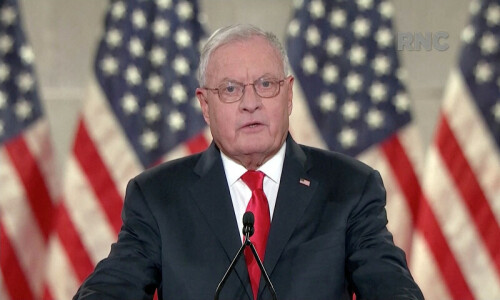LONDON Michael Pollan, tall, fit, not quite skinny but very definitely lean, is holding a fruit yoghurt in one hand and a Coca-Cola in the other. “So,” he says, “which do you think, per 100 grams, contains more sugar?”
The Coke, I reply. Duh. “Wrong,” he says. “The yoghurt. And look, it's low-fat. Isn't that great? We're getting fat on low-fat food.”
It's a nice illustration of Rule Nine in Pollan's magnificently sensible new book, Food Rules. Along with such gems as “Don't eat anything your great-grandmother wouldn't recognise as food” and “Don't get your fuel from the same place your car does”, Pollan recommends that you “Avoid food products with 'lite' or 'low-fat' or 'non-fat' in their names.”
His reasoning if you remove the fat from a foodstuff, it doesn't necessarily make it non-fattening. Certainly not if the producer ratchets up the sugar content to compensate. In fact, Pollan notes, since Americans began producing low-fat food products, they have been consuming up to 500 extra calories a day. Brilliant.
Pollan, an award-winning author, journalist and campaigner, is on a mission. Food Rules is, in effect, a condensation of his previous work much of the science behind these 64 deliberately catchy injunctions towards a healthier diet (“The whiter the bread, the sooner you're dead”) has already been expertly dissected in his earlier books The Omnivore's Dilemma and the US bestseller In Defence of Food.
The rules spring from two facts. The first is that people who eat what Pollan defines as a western diet (“lots of everything except vegetables, fruits and whole grains”) tend to suffer from western ailments obesity, type 2 diabetes, cardiovascular disease and cancer. The second is that people who eat more traditional diets - including those of certain indigenous peoples - that, by the lights of western food science, might be considered way too high-fat, high-carb or high-protein do not tend to suffer from these diseases. In other words, people can thrive on a wide variety of foods and diets, with one major exception the diet most of us in the west are now eating.
So why are we eating our way to death? Because for big food manufacturers, the western diet is payday, every day. “The more a food is processed, the more profitable it gets,” says Pollan, who refers to these products as “edible food-like substances”. And that status quo is not challenged by modern food science, which is all about identifying the “good” and “bad” nutrients in processed foods and tinkering with them - by lowering the fat, for example, or fortifying the vitamins - rather than questioning the value of processed food products in the first place.
“We don't talk about food any more,” says Pollan. “We talk about nutrients, omega-3, antioxidants, saturated fats, polyphenols. And so we play into the hands of the food marketers.” This all has the crushing logic of truth. But can we do anything about it? Pollan has little faith that Big Food will change voluntarily legislation will be needed, he fears, although he takes heart from the Obama administration's victory on healthcare reform in the US. “Pretty soon,” he explains, “the insurance industry is going to realise that we have to tackle obesity and type 2 diabetes. They might even come out in favour of taxes on soft drinks. And once we see one powerful industry pitted against another, then we might see progress.”
The complication of food has been under way for a long time now. After agriculture became more productive following the second world war, “Corn and soy and wheat and rice got cheaper - and the only way to make money out of them was to process them. A sort of arms race started to make food more complicated don't buy flour, buy cake-mix; don't buy cake-mix, buy cakes. Don't buy oats, buy Cheerios; not Cheerios, cereal bars.” Is that process reversible? It may have to be, Pollan argues, as we start running out of fossil fuels. Big Food as it exists today is, patently, not sustainable. Pollan is sure we can produce enough real food, but fossil fuels will have to be replaced by manpower. “Organic farms are wildly productive,” he says, “but a lot more labour-intensive.
So convincing is Pollan's logic that you wonder where it all came from. He started out, he says, as more of a naturalist than a foodie, but was gradually won over by the notion that “what happens on our plate represents our most powerful engagement with the natural world”. He no longer eats junk food (though his teenage son does).
He acknowledges, though, that many of the exchanges he has about this issue “are with skinny people”. An interest in good food is, still, something of a middle-class preoccupation. “But abolition, women's suffrage, those movements began as elitist too,” Pollan says. “I won't be discouraged.”—Dawn/The Guardian News Service









































Dear visitor, the comments section is undergoing an overhaul and will return soon.